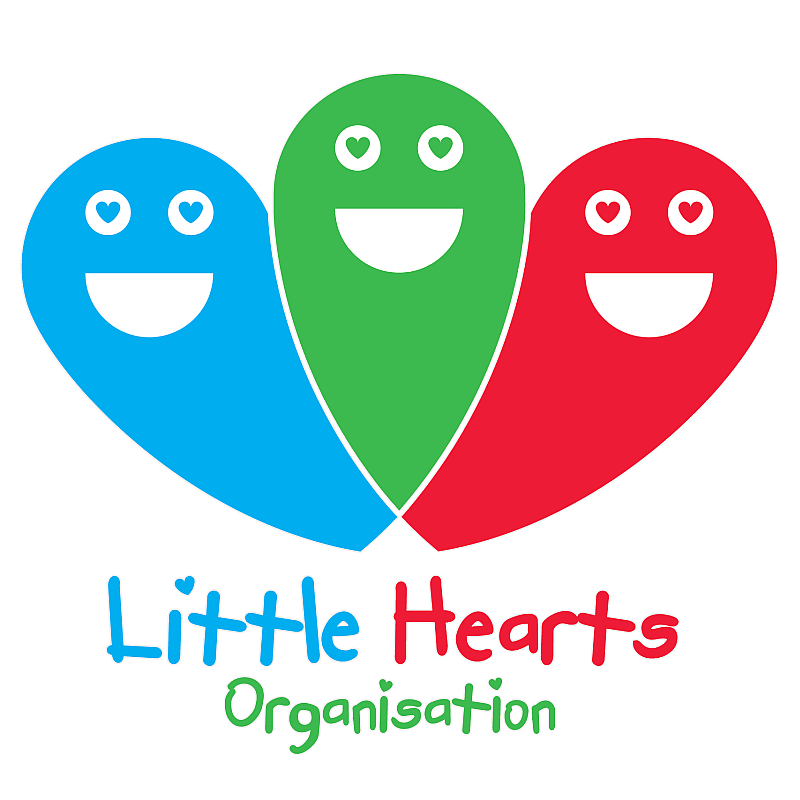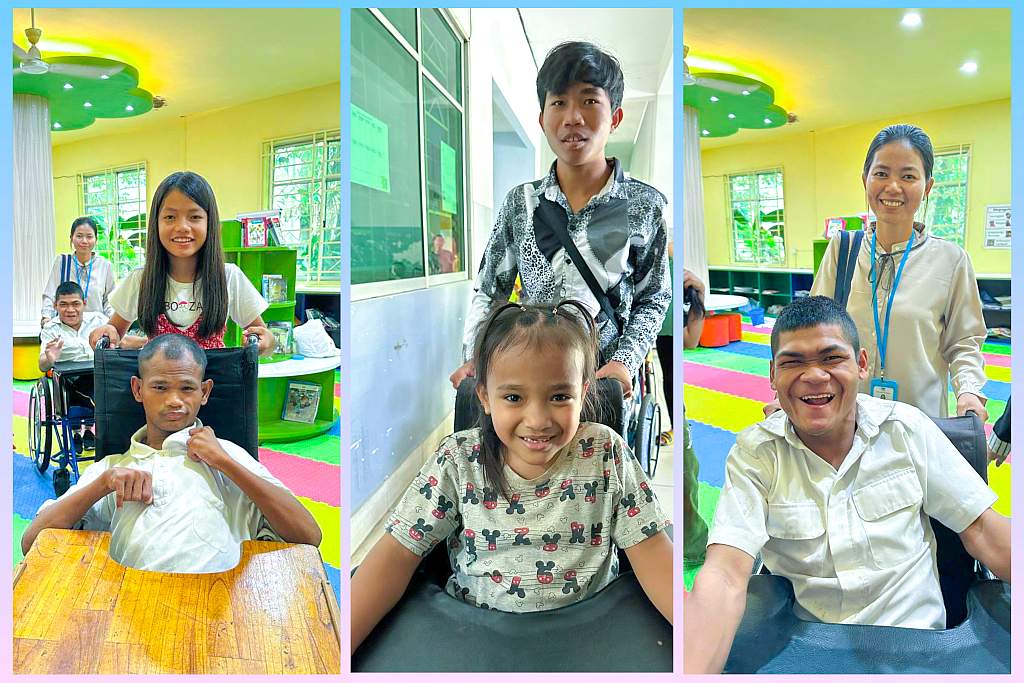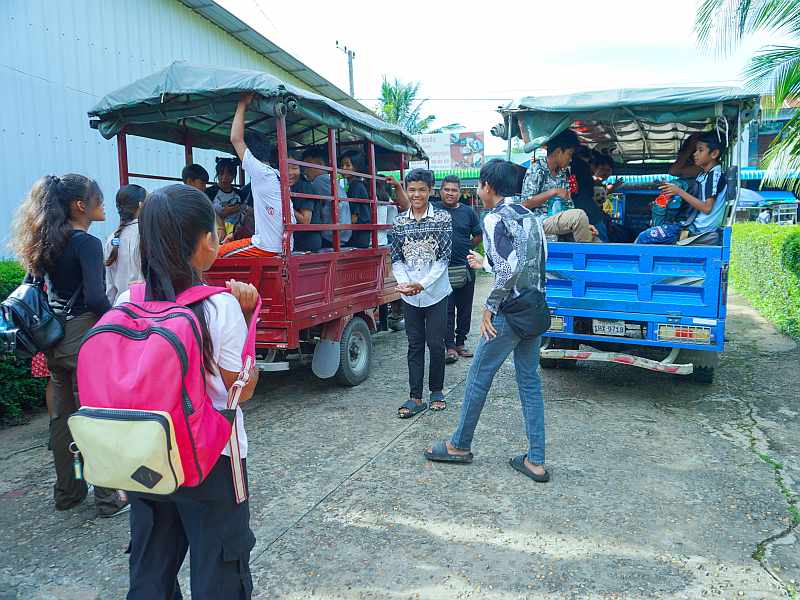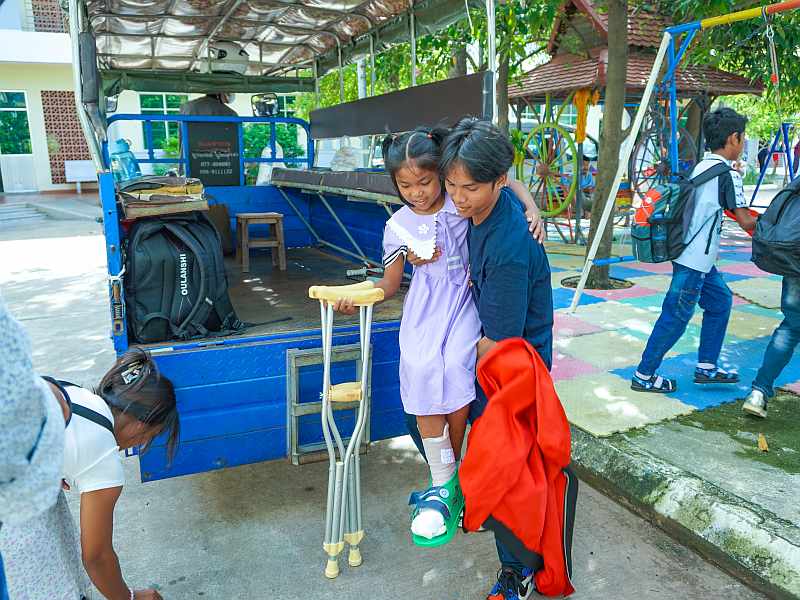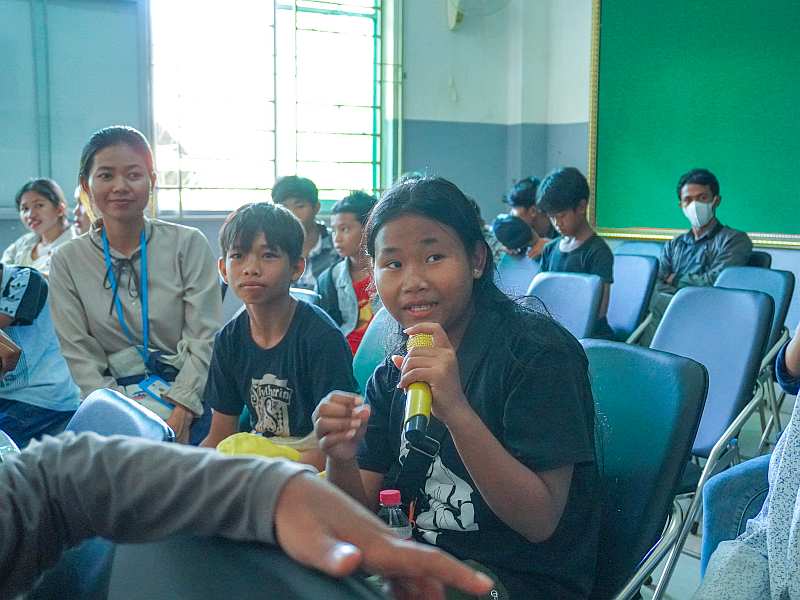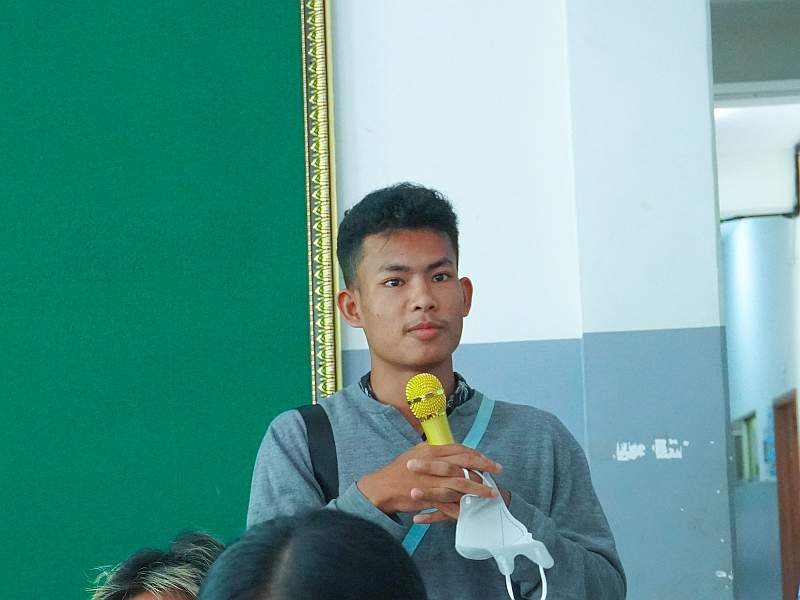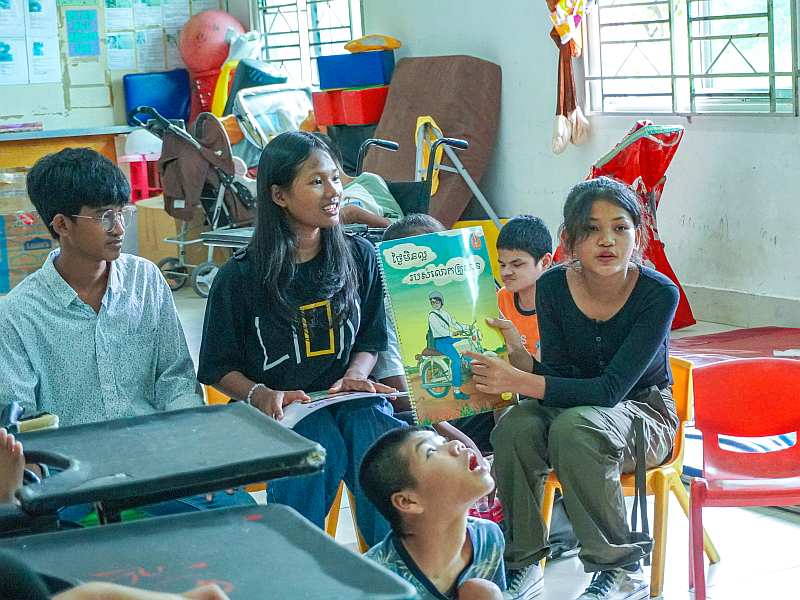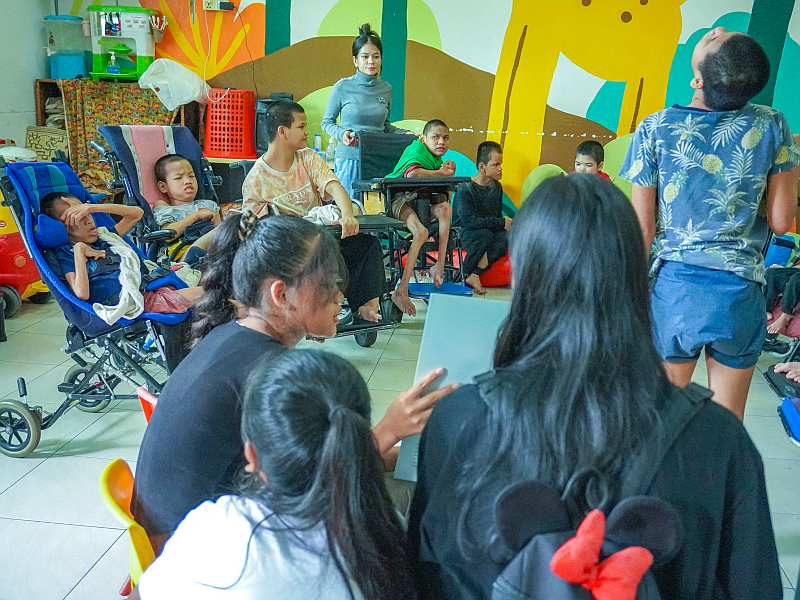The worst disease in the world is neither cancer nor cholera, but to be born unwanted, to lead a life of struggle, and finally pass away alone and unknown. This is the fate of many disabled and chronically ill children in Cambodia – a fate that the Ministry of Social Affairs tries to prevent at the National Center for Infants and Children, located in the Meanchey district in western Phnom Penh, which a group of Little Hearts kids visited recently.
The facility hosts approximately 170 physically challenged and abandoned kids, many of whom have more than one disability. Some have HIV and autism, while others were born with Down syndrome. As explained by the Center’s director, Ms. Thor Peou, most of the children at the Center were abandoned by their parents in the maternity ward of the hospital where they were born, or they were simply left outside the Center’s gates. They need 24/7 care and attention, so the Center has 83 employees, including several physiotherapists and 54 stay-in nannies.
Most disabled children at the Center lead short lives. Due to their health complications, many of them do not live past the age of 18. There are, however, a few adults at the Center who grew up there and have stayed for over 20 years.
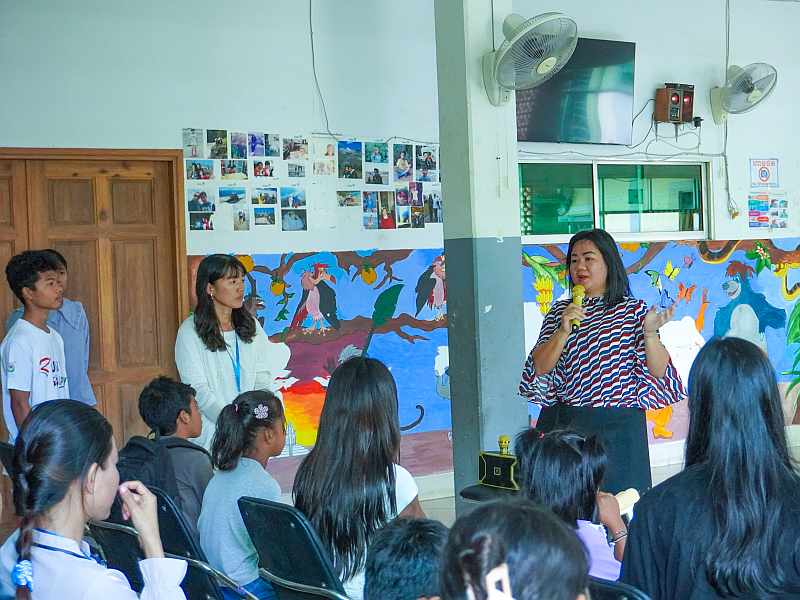
During the tour of the facility, our kids visited three different rooms – Rabbit Room, Elephant Room and Butterfly Room – used to entertain the disabled residents. The Rabbit Room, for example, accommodated very young disabled children who played together under the watchful eye of two nannies. Some were strong and lively enough to play with various toys and with each other, but others were immobile in their wheelchairs and could only watch. Here, our kids read stories for them and pushed their wheelchairs to bring them to their rooms on the second floor of the building for some show and tell. Many of the disabled children were friendly and welcoming; they were happy to see new faces and meet other children. They laughed and giggled and clapped their hands when they saw the visitors – something our kids won’t easily forget.
We also visited the Sensory Room, a therapy space designed to develop the children’s senses, especially those with limited communication skills. It has special lighting, music and a variety of different objects to touch and hold.
What did our kids make of all this? “It was a very emotional experience for me,” said Elizabeth. “Seeing the kind of life these physically and mentally challenged children lead… it made me want to cry, but at the same time I felt so grateful for what I have.”
Sarem agreed: “To be abandoned by your own parents because you were born with a disability must be the worst feeling. I feel so lucky that I was born healthy and that I’m part of Little Hearts, where I have a chance to have a better life.”
The helplessness of the Center children really touched Sreyroth: “I can’t imagine the kind of life they have, how hard it must be – struggling every day because you’re disabled and dependent on someone else to eat or take a bath… to do anything.”
“My heart broke with every face I saw”, said Micky. “There was a three-year-old boy who couldn’t talk. He was so tiny and looked so fragile, but he was so happy seeing us and following us around. I carried him back to his room because no one had noticed that he’d followed us to the front door.”
Olivia summed up everyone’s impressions: “I feel so lucky to be living the life I have at Little Hearts. I can only think of becoming a better person and studying harder. I don’t want to waste the opportunities I’ve been given.”
By taking the kids to the National Center for Infants and Children, we wanted to remind them that, despite the hardships they may have faced early in life, before they came to Little Hearts, and despite not growing up in a regular, two-parent home, our kids have much to be thankful for. There are many others who are less fortunate – children who are burdened by crushing disabilities and have few prospects for a happier life. Moreover, we want to instil in all our wards a sense of duty toward their peers. Our kids enjoy a loving home; they have access to healthcare, nutrition and a complete education, and a productive future to look forward to. In a manner of speaking, they are the most fortunate of unfortunates. We want them to grow up to be caring, altruistic individuals who will pass on to others the care and devotion they have received here.
